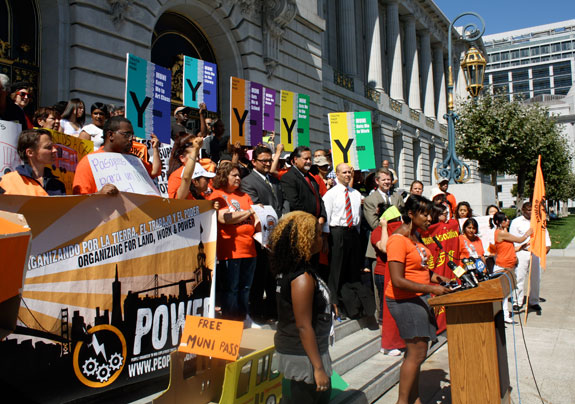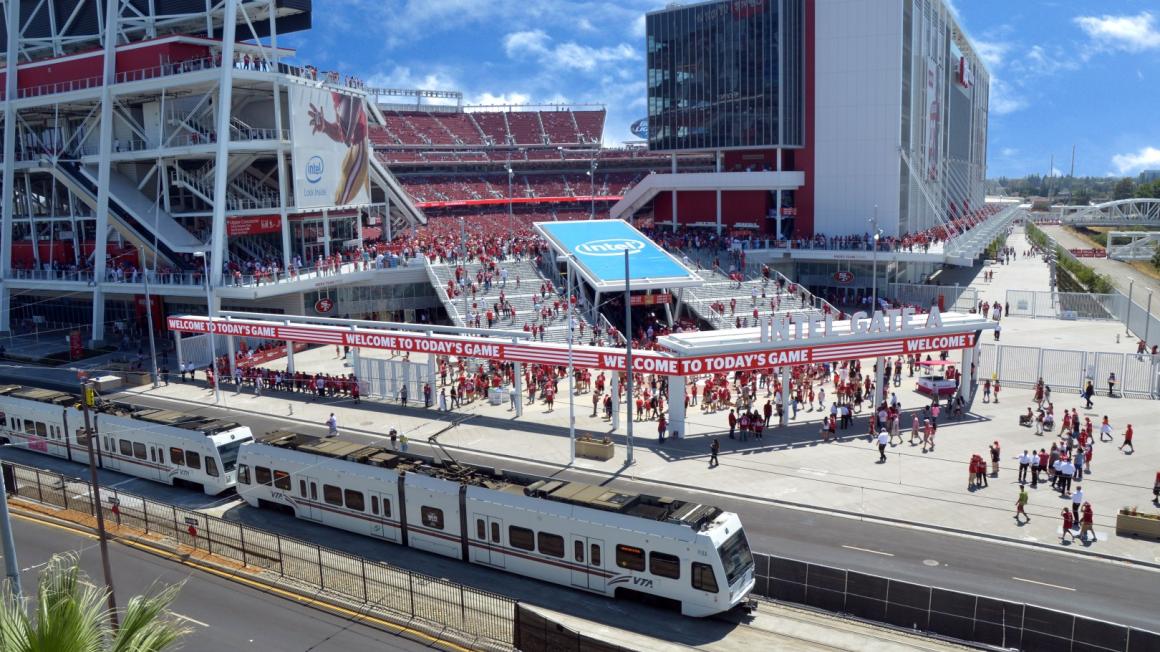Free Muni for low-income youth is just within reach, which would be the culmination of a hard-fought advocacy campaign that urged the SF Municipal Transportation Agency and the Metropolitan Transportation Commission to set aside a total of $9.4 million to improve transit access for students in need.
However, campaign organizers are remarking on the stark contrast between their uphill battle and the MTC's quick decision to fund a new, far less cost-effective ferry from Alameda to South San Francisco to serve a burgeoning tech cluster. While the free passes are probably not in jeopardy, the full-speed-ahead ferry subsidies speak volumes about the priorities of the region's transportation agencies.
Organizers for the low-income youth campaign Leah LaCroix and Bahar Ostadan pointed out in an op-ed in the Chronicle this week that there's been much less debate and scrutiny surrounding the MTC's recently-approved $18.6 million subsidy for the new Alameda-South City ferry, which on a per-ride basis will cost almost ten times as much as Muni's low-income youth program, going by the writers' calculations -- $26.60 per ride (not including startup costs) compared to $2.86 per ride.
It's normal for transit to rely on subsidies, and ferries are a great way to move people across the bay. But as Phil Matier and Andrew Ross recently wrote in their Chronicle column, the tax support needed for the South City line is off the charts compared to two existing ferry lines to SF, even when projected out for two decades.
Meanwhile, the SFMTA's low-income youth pilot needs just $5 million in regional transportation funds from the MTC to move forward. The MTC seems to be on the verge of selecting one of three options to fund it, along with similar programs for other transit agencies who suddenly said they wanted to help their own low-income riders.
Yesterday, due to low member attendance, an MTC committee passed the vote on to the agency's full board without recommending a choice. The board vote, scheduled for July 25, could be the final victory needed to launch Muni's program.
POWER organizers told the MTC committee yesterday that they support either of two funding proposals, both of which would provide $4 million of the $5 million needed for Muni's pilot in time for the next school year in the fall. (It's unclear where the last $1 million would come from.)
All three options would divvy up $8 million differently. The first option would provide $4 million for Muni's program and set the rest aside for future free-pass pilot programs at other transit agencies. Under the second option, that set-aside would be distributed immediately for pilots to Alameda-Contra Costa Transit and the Valley Transportation Authority. The third option, which is not supported by advocates, would distribute the $8 million for all transit agencies in the Bay Area to provide reduced fare programs for low-income youth.
For more on the proposals, check out this presentation [PDF] on yesterday's MTC committee agenda.







